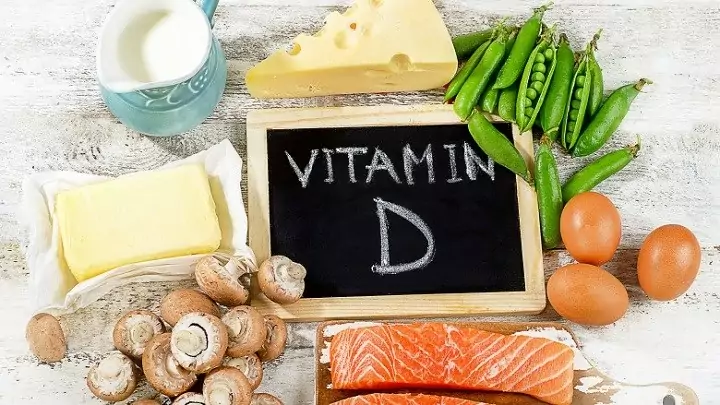Vitamin D Containing Fruits
Vitamin D is a nutrient the body needs to absorb calcium, sustain immunological function, promote bone formation, and promote healing. So, if it is lacking in our body, it can lead to rickets, poor hair growth, and other health problems. Consumption of vitamin D-containing fruits can help to keep these diseases away.
List of Vitamin D Fruits
Not many fruits are rich sources of vitamin D; the fortified orange juice mentioned below is a good source of Vitamin D and other essential minerals.
| Fruits Name
| Vitamin D per cup | Vitamin D per 100g | Vitamin D per 200 Calories
|
| Orange Juice | 2.5μg (12% DV)
| 1μg (5% DV) | 4.3μg (21% DV) |
Orange Juice:
D-rich fruits are scarce. Nearly 75% of the world’s population is allergic to milk products or lactose intolerant, with some vegans among them. As a result, oranges or orange juice are the richest source of vitamin D and other elements, including calcium.
Banana:
Bananas are a good choice for vitamin D-rich fruits. It has been proposed that a sufficient amount of magnesium is required to get the most out of vitamin D. Bananas have a high magnesium content, which helps the body activate vitamin D. So, it is also essential to eat magnesium-rich foods.
Health Benefits of Vitamin D
Vitamin D is crucial to good health. The sun, foods you eat, and supplements are all sources of vitamin D. Vitamin D protects us from a variety of diseases and ailments, including type 1 diabetes and is necessary for a variety of reasons, such as the maintenance of strong bones and teeth. Here are some of the main health benefits of Vitamin D that you must know:
Strengthening of Bones:
Vitamin D regulates calcium and keeps phosphorus levels in the blood at a healthy range, which are necessary for bone health. Vitamin D is also required for activating and assimilating calcium in the intestines and recovering calcium that otherwise would have been excreted by the kidneys.
Strengthening of Muscles:
Vitamin D is essential for muscle strength and has bone-building properties. It may also help enhance muscle strength and avoid falls, which are a prevalent concern in older persons and cause significant disability and mortality.
Stronger Immunity:
Vitamin D intake, whether daily or weekly, lowers the risk of acute respiratory infection, especially in people who are deficient in it.
Strengthening of Teeth:
Vitamin D is essential for oral health because it aids calcium absorption and reduces the risk of tooth loss and gum disease. Because of its influence on calcium metabolism, its capacity to serve as an anti-inflammatory substance, and its encouragement of the generation of anti-microbial peptides, it is overall excellent for dental health.
Decreased Risk of Cancer:
Research shows that people living in the southern latitudes have a lower risk of cancer due to the high sunlight ratio. Vitamin D has been reported to promote cellular differentiation, decrease cancer cell proliferation, stimulate cell death (apoptosis), and reduce tumour blood vessel creation in mice, all of which may limit or inhibit the growth of cancer cells and tumours.
Reducing Obesity:
Vitamin D aids in the prevention of obesity and the maintenance of a healthy weight. Vitamin D helps you lose weight after restoring the function of the appetite hormone leptin, which gives you a full stomach and reduces your desire to eat all the time.
Issues Due to Vitamin D Deficiency
To keep your body working properly, you need to get enough vitamin D. Vitamin D helps keep bones stronger and is also helpful for preventing certain dangerous malignancies. Muscle weakness, discomfort, weariness, and depression are signs of vitamin D deficiency. To get enough vitamin D, eat the foods or fruits mentioned above, take supplements, and get plenty of sun.
- Rickets is caused by a vitamin D deficiency, which manifests in children as abnormal growth patterns, muscle weakness, bone discomfort, and joint abnormalities. Although relatively uncommon, children who are vitamin D deficient may experience muscle weakness as well as sore and painful muscles.
- Skeletal ache.
- Muscle weakness, pains, or cramping are all symptoms of muscle weakness.
- Anxiety can cause depression.
Conclusion
It will be an innovative approach if you acquire your daily dose of vitamin D to spend time in the sun. Many people, however, find it very hard to get enough sun exposure. It may be challenging, but not impossible, to get enough through your diet only. You can consume orange juice and bananas daily to get enough Vitamin D, but not too much. Consuming a variety of vitamin D-rich foods is an excellent approach to ensure you get enough of this vital nutrient. Sodium in bananas is also very high, and it will help you if you have health issues related to sodium loss. I hope you like and enjoyed reading this article, discussing all aspects of fruits’ names containing Vitamin D.

















